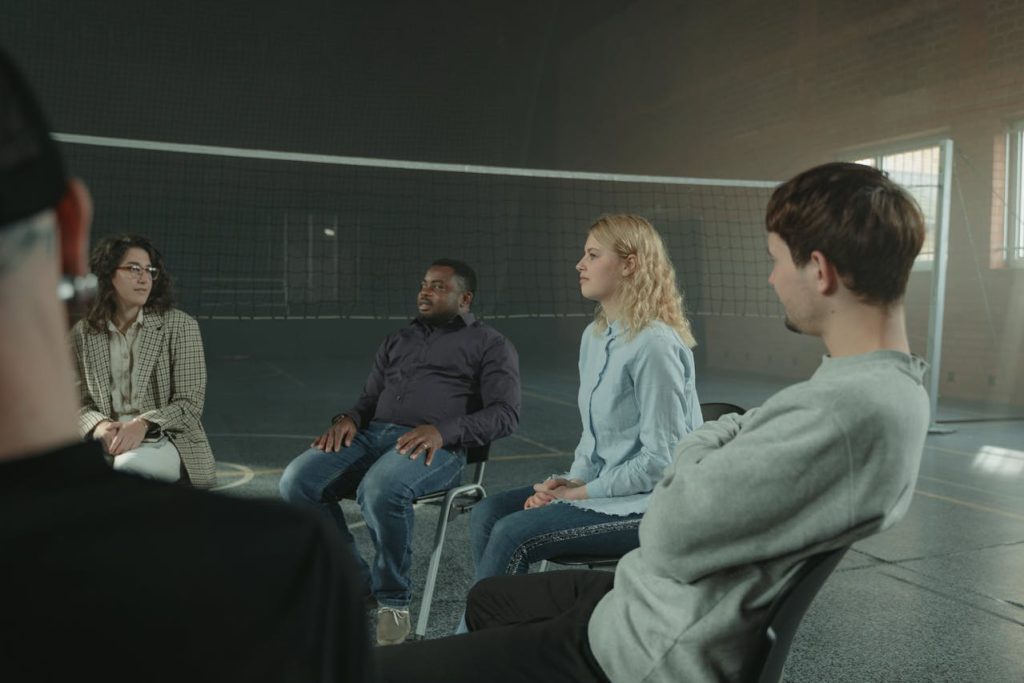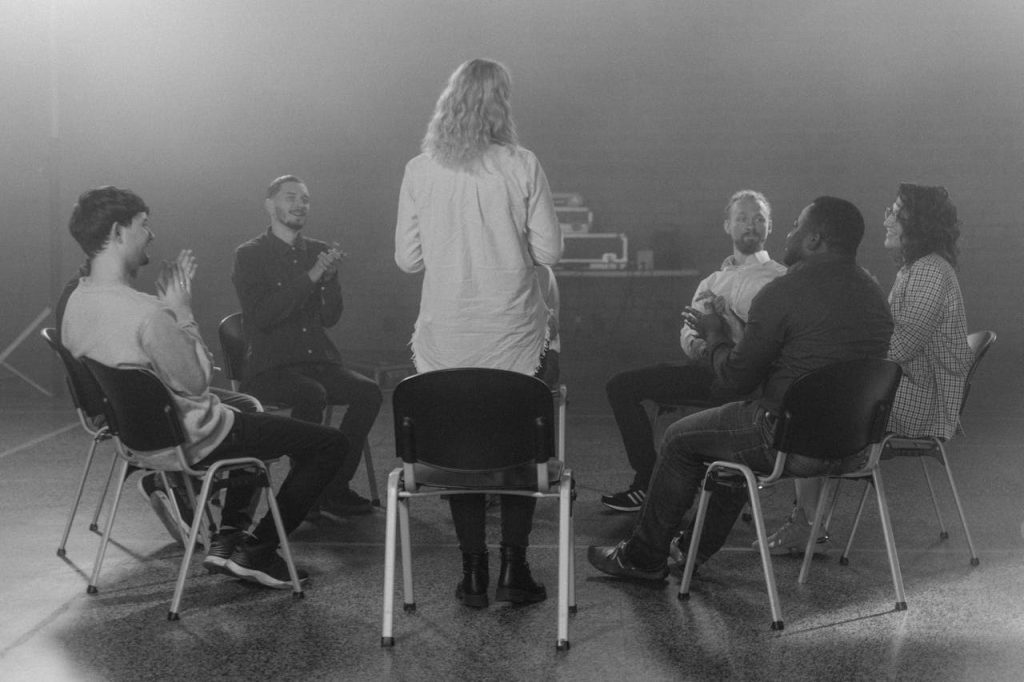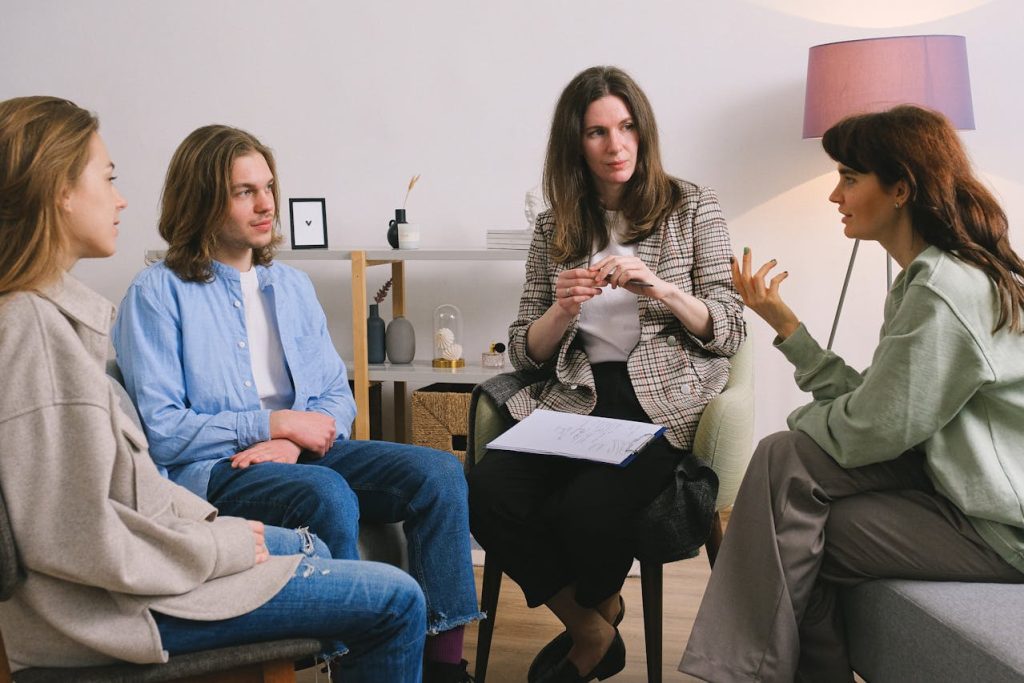In the realm of relationships, communication, emotional understanding, and conflict resolution are essential for fostering healthy, loving connections. For many couples, reaching a point where issues become difficult to handle independently may signal a need for professional help. At this juncture, terms like “couples therapy” and “marriage counseling” are often used interchangeably. However, while these two forms of relationship therapy share similarities, they serve distinct purposes depending on the nature of the issues at hand.
Understanding the nuances between couples therapy and marriage counseling can help couples decide which approach best suits their relationship needs. In this detailed exploration, we will break down the core differences between couples therapy and marriage counseling, examine their unique goals and methods, discuss when each is appropriate, and dive into the qualifications of professionals who provide these services.
What Is Couples Therapy?
Couples therapy is a form of psychotherapy designed to help couples of all types recognize and resolve conflicts to improve their relationships. It’s not limited to married couples; people in any form of a romantic relationship can seek couples therapy, whether they are dating, engaged, cohabiting, or in a long-term partnership.
Goals Of Couples Therapy
The primary goal of couples therapy is to address specific relational issues that may arise between partners. These issues could include emotional disconnection, unresolved past trauma, communication problems, or even more severe issues like infidelity or substance abuse. The focus of couples therapy is typically on the present-day dynamics of the relationship, although it often involves uncovering and healing past wounds that affect the relationship today.
Couples Therapy Aims To:
- Improve Communication Skills: Miscommunication or a lack of communication is often at the root of relational issues. Couples therapy teaches partners how to communicate their needs, feelings, and desires more effectively.
- Resolve Ongoing Conflicts: Whether the issues involve money, intimacy, family matters, or personal boundaries, couples therapy helps partners identify the root causes of their conflicts and work toward solutions.
- Rebuild Emotional Intimacy: When couples grow emotionally distant or experience a breakdown in their bond, couples therapy helps them reconnect on an emotional level.
- Strengthen The Relationship: By enhancing empathy and understanding between partners, couples therapy helps to fortify the relationship’s foundation, providing tools to navigate future challenges.
- Work Through Crises: Major crises such as infidelity, major loss, or health-related issues can severely impact a relationship. Couples therapy offers a supportive space to address and heal from these crises.
How Couples Therapy Works
Couples therapy often follows a structured approach, with the therapist guiding the couple through a series of exercises and conversations to help them understand their relationship better. The therapist typically serves as a neutral third party, offering insight into patterns of behavior that may be contributing to conflict or emotional distress.
Therapists may use a variety of therapeutic modalities depending on the couple’s unique situation:
- Cognitive Behavioral Therapy (CBT): This approach focuses on identifying and changing negative thought patterns and behaviors that contribute to relationship problems.
- Emotionally Focused Therapy (EFT): EFT works to rebuild attachment bonds and foster emotional responsiveness, helping partners to understand their emotional responses to each other.
- Imago Relationship Therapy: This approach helps partners explore unresolved issues from their past that influence their relationship today, often stemming from childhood or previous relationships.
- The Gottman Method: Developed by Drs. John and Julie Gottman, this method involves techniques for improving communication, fostering emotional intimacy, and resolving conflicts based on decades of relationship research.
In couples therapy, both partners are encouraged to actively participate in exercises and discussions. Homework assignments may be given to help couples practice the new skills they learn in therapy outside of the sessions. Sessions are often scheduled on a weekly or biweekly basis, and therapy can last anywhere from a few months to several years, depending on the couple’s needs.
What Is Marriage Counseling?
Marriage counseling, sometimes called “marital therapy” or “premarital counseling” in certain contexts, is a type of therapy specifically aimed at married couples or those considering marriage. While marriage counseling shares many of the goals of couples therapy, it tends to focus more on the institution of marriage and the roles, responsibilities, and expectations tied to it.
Goals Of Marriage Counseling
Marriage counseling is generally sought by couples who are experiencing issues within their marriage that they feel may threaten the stability of the relationship. The focus is often on strengthening the marriage itself, addressing specific issues that are affecting the couple’s ability to function as a partnership.
Some Of The Key Goals Of Marriage Counseling Include:
- Improving Marital Satisfaction: Couples often seek marriage counseling when they feel unsatisfied with aspects of their relationship, such as intimacy, emotional connection, or shared goals.
- Re-Establishing Commitment: In some cases, one or both partners may feel that their commitment to the marriage has waned, or that they are drifting apart. Marriage counseling helps couples explore their commitment and rekindle their bond.
- Navigating Life Transitions: Life events such as the birth of a child, financial changes, or retirement can put a strain on a marriage. Marriage counseling helps couples navigate these transitions together.
- Preparing For Marriage: Premarital counseling is a form of marriage counseling designed for engaged couples. It focuses on preparing couples for the realities of married life, addressing issues like communication, conflict resolution, finances, and family planning.
- Managing Expectations: Every marriage involves balancing the needs and expectations of both partners. Marriage counseling helps couples clarify their expectations for the relationship, including roles within the marriage, shared goals, and family dynamics.
- Healing From Infidelity Or Betrayal: If trust has been broken due to infidelity or other forms of betrayal, marriage counseling offers a space to work through these painful experiences and rebuild trust.
How Marriage Counseling Works
Marriage counseling typically involves sessions with both partners, although individual sessions may be included depending on the circumstances. The counselor works with the couple to identify specific issues that are affecting the marriage and helps them develop strategies to address these issues.
Like couples therapy, marriage counseling may incorporate various therapeutic approaches, including:
- Solution-Focused Brief Therapy (SFBT): This approach emphasizes finding solutions to specific problems within the marriage, often in a shorter time frame than traditional therapy.
- Behavioral Marital Therapy (BMT): BMT focuses on identifying and changing harmful behaviors within the marriage, fostering healthier interaction patterns.
- Family Systems Therapy: This approach examines the broader family dynamics that may be impacting the marriage, including relationships with extended family members, cultural expectations, or generational patterns.
Marriage counseling is often more short-term than couples therapy, with many couples seeking help for a specific issue or set of issues. While some couples may engage in marriage counseling for several months or longer, others may only need a few sessions to resolve their concerns.

Key Differences Between Couples Therapy And Marriage Counseling
Although there is significant overlap between the two, the following distinctions can help clarify when couples therapy or marriage counseling may be more appropriate:
Relationship Status
- Couples Therapy: Open to couples at any stage of their relationship, including dating, cohabiting, or engaged. It is often sought by partners experiencing challenges who may or may not be considering marriage.
- Marriage Counseling: Specifically aimed at married couples or those preparing for marriage. The focus is on maintaining or improving the marital relationship itself.
Focus Of The Therapy
- Couples Therapy: Emphasizes improving communication, emotional understanding, and conflict resolution across all types of romantic relationships. The focus is broader and can include individual growth within the relationship, as well as relationship dynamics.
- Marriage Counseling: Focuses more narrowly on the marital relationship, addressing issues tied to the institution of marriage, such as roles, expectations, and commitment. Marriage counseling may also involve working through specific marital problems, like infidelity or parenting differences.
Therapeutic Goals
- Couples Therapy: Aims to help partners navigate relational dynamics, whether they are focused on staying together or even parting ways amicably (such as in the case of separation or divorce). The goal is often to improve the quality of the relationship, regardless of the couple’s future decisions.
- Marriage Counseling: Typically centers around preserving and strengthening the marriage. The goal is often to keep the relationship intact and improve satisfaction within the marriage.
Time Frame
- Couples Therapy: Maybe more long-term, especially if the couple is dealing with deep-seated issues like trauma, chronic conflict, or emotional disconnection.
- Marriage Counseling: Often more short-term and solution-focused, with couples seeking help for specific marital issues that they want to address in a relatively brief period.
The Role Of The Therapist Or Counselor
- Couples Therapy: The therapist often delves into the emotional and psychological patterns within the relationship, helping couples to better understand each other’s needs and emotional triggers. They may also explore the individual histories of each partner and how these histories impact the relationship.
- Marriage Counseling: The counselor often serves as a mediator or coach, helping couples resolve specific issues tied to the marriage itself. The counselor may provide tools and techniques for improving communication and problem-solving within the marriage.
When To Seek Couples Therapy VS. Marriage Counseling
The decision to seek couples therapy or marriage counseling often depends on the nature of the problems the couple is facing, as well as the goals they have for their relationship.
When To Seek Couples Therapy:
- The relationship is in its early stages, but significant issues have already emerged.
- The couple is experiencing chronic conflict or emotional disconnection that has persisted for a long time.
- One or both partners are struggling with unresolved trauma or personal issues that are affecting the relationship.
- The couple is not married but is facing significant
- relational challenges, such as infidelity, communication breakdowns, or issues related to intimacy.
- One or both partners are unsure whether they want to stay in the relationship or end it.
- The couple is considering separation or divorce and wants to do so amicably and respectfully.
When To Seek Marriage Counseling:
- The couple is married and facing specific issues that are putting a strain on the marriage, such as financial disagreements, parenting conflicts, or issues related to extended family.
- The couple is preparing for marriage and wants to ensure that they are entering into the marriage with clear expectations and good communication skills (premarital counseling).
- Trust has been broken due to infidelity or betrayal, and the couple wants to work through the pain and rebuild trust within the marriage.
- One or both partners feel dissatisfied with the marriage but want to work on improving it rather than ending the relationship.
- The couple is experiencing major life transitions, such as the birth of a child, retirement, or a move, that are affecting the dynamics of the marriage.
Professional Qualifications: Who Provides Couples Therapy And Marriage Counseling?
The qualifications of the professional you choose can also influence whether couples therapy or marriage counseling is the right fit for your relationship. Both types of therapy are typically provided by licensed professionals, but their backgrounds may vary.
Couples Therapists:
- Licensed Marriage And Family Therapists (LMFTs): These professionals have specialized training in working with couples and families. They are often trained in various therapeutic modalities designed to improve communication, resolve conflict, and foster emotional intimacy.
- Clinical Psychologists (Ph.D. or Psy.D.): Psychologists may also provide couples therapy, especially when the focus is on deeper psychological issues or emotional wounds within the relationship.
- Licensed Clinical Social Workers (LCSWs): Social workers who specialize in mental health may also offer couples therapy, particularly when there are external stressors (such as financial or societal issues) impacting the relationship.
Marriage Counselors:
- Licensed Marriage And Family Therapists (LMFTs): Many LMFTs specialize in marriage counseling and have training in addressing the specific dynamics of marital relationships.
- Pastoral Counselors: Some couples seek marriage counseling from religious leaders or pastoral counselors, particularly if they want guidance that aligns with their faith or spiritual beliefs.
- Certified Premarital Counselors: For couples preparing for marriage, premarital counselors are often certified to provide specific types of counseling that focus on preparing couples for the challenges of married life.
Conclusion:
Both couples therapy and marriage counseling can be invaluable resources for couples seeking to improve their relationships. While these approaches share common goals, their distinct focuses and methods make them better suited for different types of relationships and challenges.
If you are unsure whether couples therapy or marriage counseling is right for you, consider the nature of the issues you are facing, your relationship status, and your long-term goals. A qualified therapist or counselor can help guide you through this decision, ensuring that you receive the support and tools necessary to build a stronger, healthier relationship.
Unlock Your Relationship Success With Couples Therapy At Pivot Counseling
Are you struggling to navigate challenges in your relationship and looking for effective ways to strengthen your connection? You’re not alone, and we’re here to help! At Pivot Counseling, our team of compassionate and knowledgeable professionals is dedicated to supporting you through personalized couples therapy, ensuring you find the right approach to enhance your relationship and improve your quality of life together.
Whether you’re seeking to improve communication, manage conflicts, or navigate daily challenges more effectively, we offer an evidence-based approach tailored to your specific relationship needs. Imagine experiencing greater understanding, emotional balance, and a deeper connection with your partner. Our experts are committed to guiding you through this transformative journey, providing the tools and strategies needed for long-term success.
Why wait to take control of your relationship? Contact us today to schedule a couples therapy session at Pivot Counseling and explore the options that best suit your needs. Let us help you achieve greater emotional well-being, stronger communication, and a happier future together. Your brighter relationship starts today!
Disclaimer:
The information on this website is for informational purposes only and not a substitute for professional medical advice, diagnosis, or treatment. Always seek the advice of your physician or qualified health provider with any questions regarding a medical condition. Pivot Counseling makes no warranties about the accuracy, reliability, or completeness of the information on this site. Any reliance you place on such information is strictly at your own risk. Licensed professionals provide services, but individual results may vary. In no event will Pivot Counseling be liable for any damages arising out of or in connection with the use of this website. By using this website, you agree to these terms. For specific concerns, please contact us directly.
















